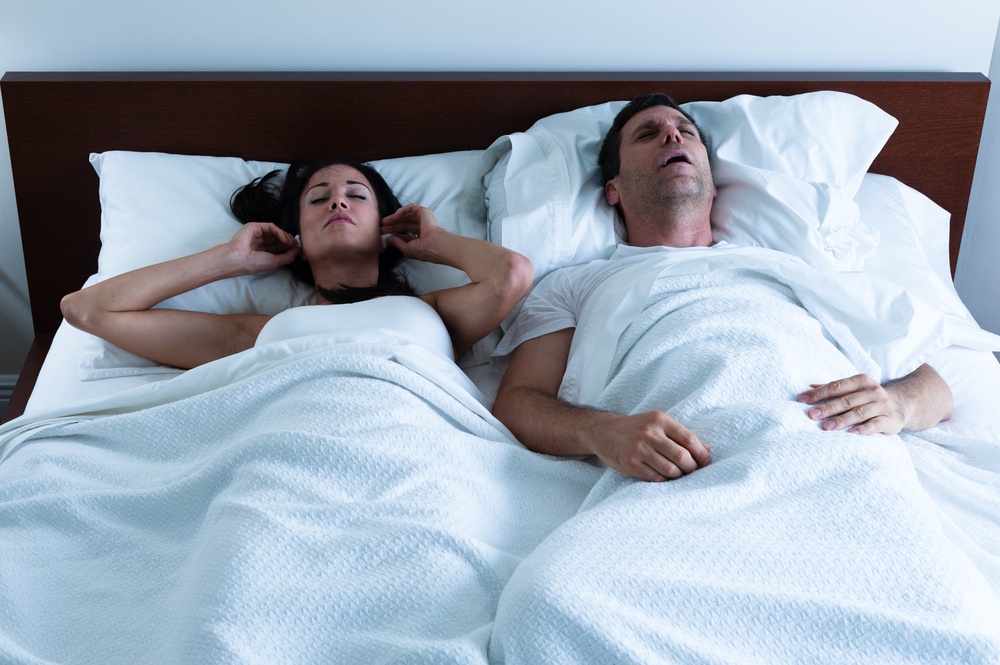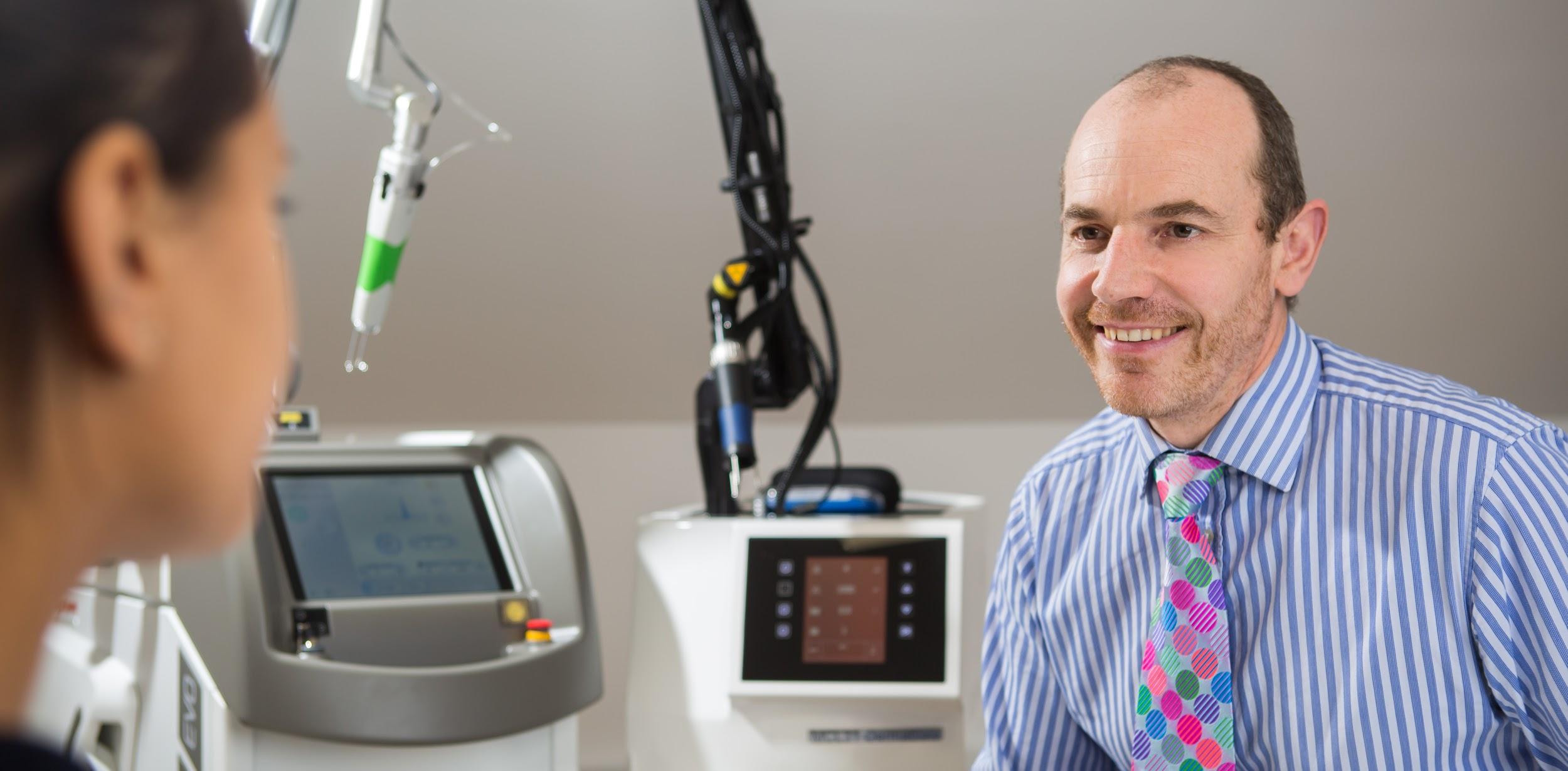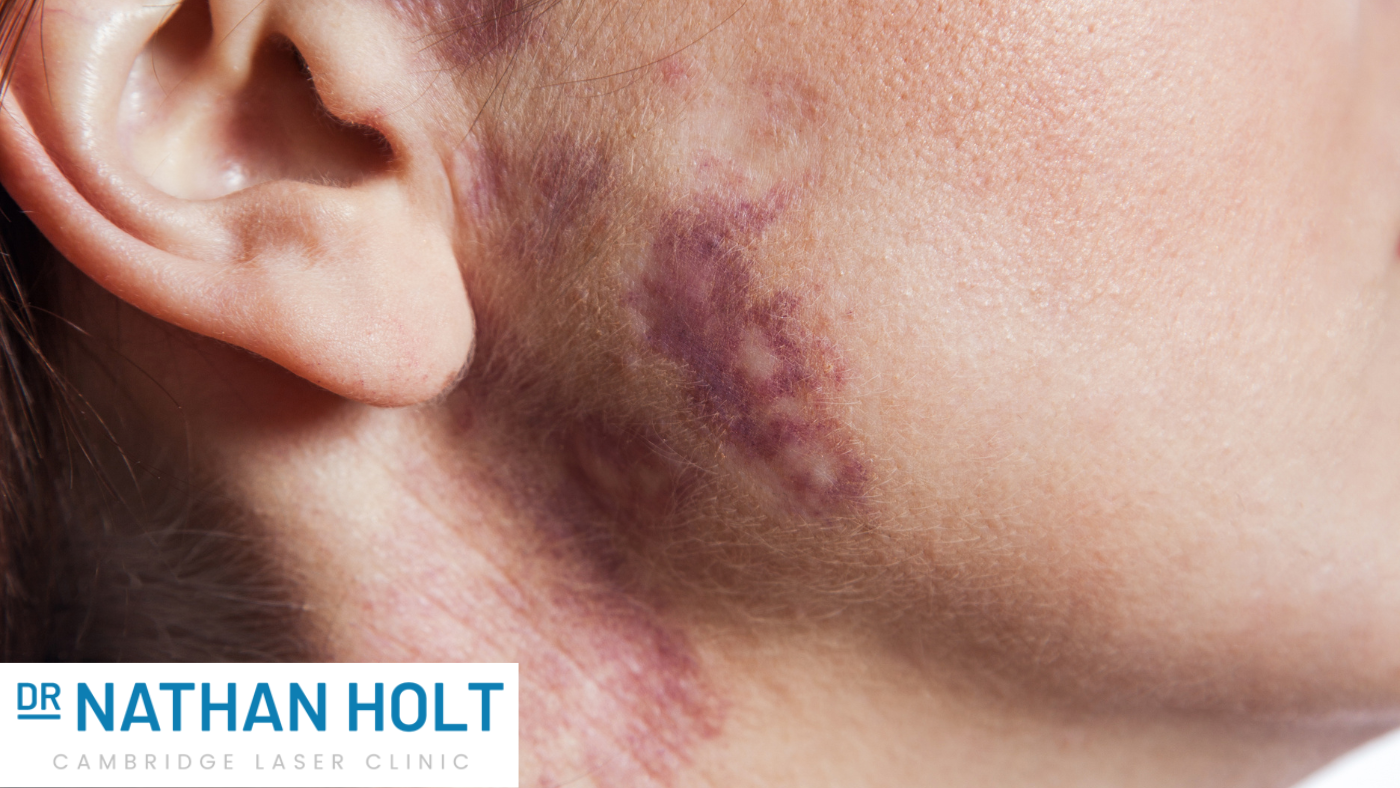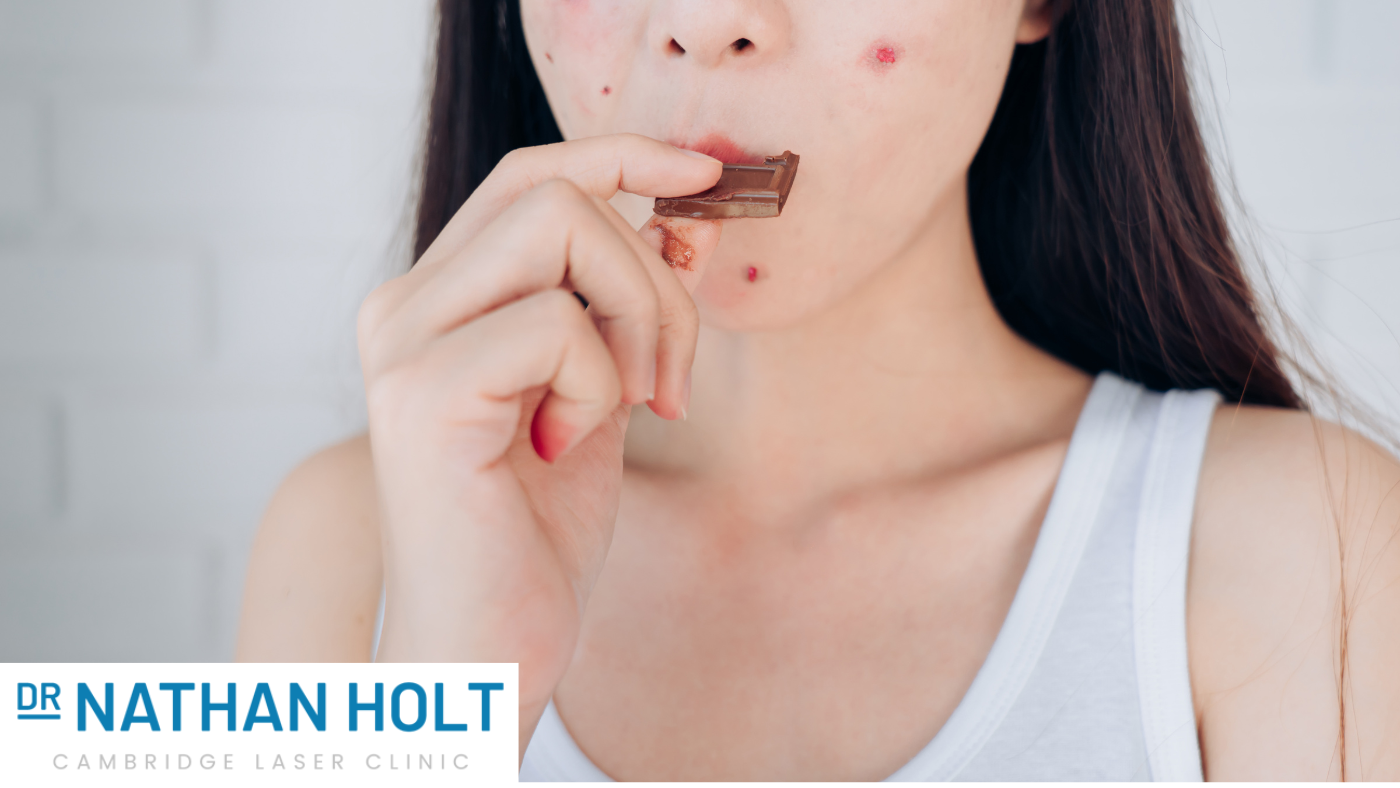Rosacea, a chronic skin condition characterised by facial redness, swelling, and visible blood vessels, can…

Laser Treatment For Snoring: An Effective Alternative to Surgery
Snoring is an all too familiar issue in the lives of millions, affecting men and women in equal proportions across the UK. Far from a harmless source of amusement, it is often portrayed as, the consequences of snoring extend far beyond disruption of sleep for those affected.
While instances of snoring are generally benign – i.e. they don’t pose a direct threat to a person’s health – other cases may be indicative of an underlying health issue. Likewise, where a case of snoring is particularly severe, it can lead to the kinds of breathing difficulties that can indeed harm the health of the individual in question.
Hence, if you have any questions or concerns whatsoever on the subject of snoring, it’s important to raise them with a qualified practitioner at an early stage.
The Causes of Snoring
Snoring is a multi-faceted issue influenced by various factors. For example, things like anatomy, age, weight and lifestyle habits all contribute to the prevalence of snoring.
As part of the natural ageing process, muscle tone in the throat gradually weakens, leading to potential airway obstruction during sleep. This is why men and women alike are more prone to snoring as they age.
Excess weight, especially around the neck, can further narrow the air passage. Meanwhile, lifestyle habits such as excessive alcohol consumption, smoking and lack of exercise have also been found to play a role.
These are just some of the countless factors that can contribute to the tissue vibrations and disrupted airflow that result in snoring.
Effects of Snoring on Health
The potential consequences of chronic snoring extend far beyond restless nights for those affected and their partners. One of the most concerning associations with snoring is sleep apnoea – a sleep disorder characterised by intermittent cessation of breathing during sleep.
This condition, if left untreated, can contribute to serious health issues including hypertension, cardiovascular disease and diabetes.
Additionally, snoring disrupts sleep patterns, leading to daytime fatigue, impaired cognitive function and mood disturbances. It is therefore essential to ensure that any concerns regarding storing are addressed at an early stage, when potential treatment options are usually most effective.
Surgical Intervention: Pros and Cons
Surgical intervention might seem like a logical solution for those plagued by persistent snoring. Procedures like Uvulopalatopharyngoplasty (UPPP) involve tissue removal to widen the airway, in order to tackle the issue at its root cause.
But while surgical approaches can provide relief and tend to be effective in most cases, they come with inevitable drawbacks. Recovery from invasive surgeries can be painful and extensive, requiring days or even weeks of downtime.
Complications, including infection and bleeding, can also her career in rare cases. The most common post-operative side effect of surgical intervention for snoring is a severe sore throat that can persist for 7-10 days.
Non-Surgical Alternatives: Introduction to Laser Treatment
For individuals affected by snoring who would prefer a non-invasive alternative to surgery, laser treatment has proven extensively capable of replicating the effects of UPPP.
This approach likewise addresses the root causes of snoring, though in this case without the need for incisions or general anaesthesia.
How Non-Surgical Laser Treatment Works
Non-surgical laser treatment for snoring follows a structured and systematic process to gradually alleviate snoring:
- Consultation and Assessment: It begins with a comprehensive assessment with a skilled medical professional, which involves evaluating medical history, sleep patterns and conducting a physical examination to tailor the treatment plan. It’s at this point that the patient’s suitability or otherwise for the treatment will also be assessed.
- Laser Application: During the treatment itself, a focused laser is directed at specific areas in the throat with pinpoint precision, such as the soft palate and uvula. This laser stimulates collagen production and tightens tissues to reduce airway obstruction.
- Stimulating Collagen Production and Tightening Tissues: The laser’s energy prompts collagen production to enhance tissue elasticity and firmness, further contributing to a more stable airway during sleep.
- Gradual Reduction in Snoring: Over several treatment sessions, the patient experiences a noticeable reduction in the frequency and intensity of snoring. As tissues become more supple and resilient, the vibrations responsible for snoring are reduced.
- Multiple Sessions for Optimal Results: While some improvement may be observed after the first session, sustained and optimal results usually call for a series of treatments. The number of sessions varies based on individual objectives, physiology and the severity of the patient’s snoring.
Benefits of Laser Treatment
The popularity of non-surgical laser treatment as an alternative to surgical intervention for snoring is attributed to the following advantages among others:
- Minimal Downtime and Discomfort: Unlike surgery, laser treatment entails minimal downtime, allowing individuals to resume normal activities shortly after each session.
- No General Anaesthesia Required: Laser treatment can be performed under local anaesthesia even with no anaesthesia required. This mitigates the risks and potential complications associated with general anaesthesia used in surgical procedures.
- Reduced Risk of Complications: The non-invasive nature of laser treatment reduces the likelihood of complications such as infections, bleeding, or adverse reactions to anaesthesia.
- Faster Recovery: Recovery after laser treatment is significantly faster than conventional surgery, enabling patients to get back to normal lives without enduring an extended period of discomfort.
Can Snoring Be Brought Under Control Without Medical Intervention?
Depending on the cause and severity of a case of snoring, it may be possible to bring the issue under control without medical intervention.
In instances where snoring is not particularly severe or chronic, a combination of the following could bring some degree of relief:
- Sleep Position Adjustment: Sleeping on your side instead of your back can help prevent the collapse of throat tissues that contribute to snoring. This method is moderately effective for many snorers, bringing noticeable improvements for some individuals.
- Elevated Head Position: Using an extra pillow or raising the head of the bed can aid in keeping airways open. While this approach offers some relief, its effectiveness varies.
- Weight Management: Losing weight – especially around the neck area – can alleviate pressure on the airways, leading to reduced snoring. Weight loss has proven to be effective for many individuals in diminishing snoring frequency.
- Avoiding Alcohol and Sedatives: Alcohol and sedatives relax throat muscles, exacerbating snoring. Hence, by minimising or cutting out such substances entirely, you may experience a noticeable reduction in snoring.
- Nasal Strips: Nasal strips help physically widen the nasal passages, enhancing airflow and potentially reducing snoring. These strips provide modest relief, particularly for those with nasal congestion.
- Hydration: Staying adequately hydrated prevents mucus from becoming sticky and obstructing airways. While hydration is beneficial for overall health, its direct impact on snoring is limited.
- Throat Exercises: Regularly performing throat exercises can strengthen the muscles in the throat, reducing the likelihood of airway collapse during sleep.
- Avoiding Heavy Meals Before Bed: Consuming large meals close to bedtime can lead to indigestion and increased pressure on the diaphragm, worsening snoring. Opting for lighter dinners is therefore advisable.
- Humidifiers: Using a humidifier in the bedroom can maintain optimal moisture levels in the airways, reducing the harshness of snoring sounds. Something that can bring fast and effective relief, particularly in dry environments.
- Lifestyle Changes: Overall healthy habits, including regular exercise, a balanced diet and smoking cessation, contribute to weight management and improved muscle tone, potentially reducing snoring.
Call Cambridge Laser Clinic…
If you would like to learn more about non-surgical treatment options for snoring, contact the team at Cambridge Laser Clinic anytime. Our cutting-edge laser treatments could prove the relief you’ve been looking for, without the need to undergo complex, costly or potentially dangerous surgery.
With no obligation to go ahead, we’ll assess your suitability for laser treatment and provide you with all the information you need to make a safe and confident decision.
Call today for a chat with a member of our team, or email us anytime and we’ll get back to you as soon as possible.



